Abstract
Developing a career in education or research means working hard to get new exciting results, presenting papers at conferences or trying to publish your work. This study aims at identifying the current state and perspectives through research (based on modern tools and methods) on issues related to graduates (and students) scientific research capacity, as well as the intention of graduates from technical universities from Romania to embrace didactic or research career. Research methodology consisted in a survey based on a questionnaire completed by more than 320 respondents. Graduates (and students) from technical universities in Romania are the target group of the research. The respondents of the questionnaire answered the questions regarding: the intention to continue the studies at the Ph.D. level, the attractiveness of a career in research, the attractiveness of a didactic career, the motivation to choose a didactic career, the motivation to choose a career in research, how many researches were being conducted and how many papers / books chapters were being written and disseminated, the intention to make a research on a specific issue and to publish in the next period a book / paper / chapter in a book, etc. The findings of the study are the core of this article. Finally, based on the analysis of data, some final aspects are highlighted.
Keywords: Didactic and research careerstudents and graduatestechnical universities
Introduction
The
Professional competences;
The ability to work with others;
The ability to work with technology;
Enthusiasm - is a promoter of a good experience at classes;
Interaction with students - the ability to create a positive learning environment.
In the research titled “
extrinsic motivation (including elements such as remuneration of work and other benefits - such as the security offered by such a job);
intrinsic motivation (the joy to teach and the school environment where the instructive-educational process takes place);
altruistic aspects (the fact that the teaching profession offers the opportunity to become an decisive element in the lives of the young, in the major decisions that the latter will take).
People who choose altruistic reasons in choosing teacher education program absolutely have a deep passion for teaching and see teaching as a socially worthwhile and important job, such as love to work with children, desire to help children succeed, shape future of children, enhance social equity, a desire to contribute to society, a socially worthwhile job, to fulfil a mission, and to answer a calling (Muazza, Rosmiati, & Tiara, 2016). Extrinsic reasons are included the benefit and perks offered (Low, Lim, Ch’ng, & Goh, 2011). Meanwhile, Low, Lim, Ch’ng, and Goh (2011) described that intrinsic reasons can be understood as job-related factors including the nature and conditions surrounding the job.
According to Francine Berman (2018) the research helps you to be:
curious and creative;
independent in your work;
persevering in your approach;
focused and disciplined.
Research means:
innovation;
design and development of new products;
the opportunity to create new technologies.
Problem Statement
Understanding student teachers’ initial reasons to become a teacher by entering a teacher education program is essential as a foundation to develop teacher education policies (Muazza et al., 2016).The didactic competence does not identify with the pedagogical aptitude, although the latter is implied, as it has a larger sphere and it includes in its structure, a series of data referring to the specialty training of the teacher, at the values guiding him, at the social relations which integrate them. It is not a simple summation of competences, but a structure which forms an individual style of activity inherent to the educators (Păişi Lăzărescu, Stan, & Tudor, 2013).
On the other hand, the goal as a researcher is to investigate a problem with the goal of developing a solution that advances the state of knowledge about that problem (Berman, 2018). In order to have success in research you must take care about:
The way you choose the research problem;
The way you solve the problem;
The way you put together the individual research efforts in order to achieve the research objectives;
The way you communicate/disseminate your results to the academic and research medium.
The paper is a research about the attractiveness of didactic or research career in technical universities from Romania and the graduates (and students) scientific research capacity.
Research Questions
The main questions of the research are:
Is a didactic or research career attractive for the graduates of a technical university?
What is the motivation to choose a didactic or research career?
What is the motivation not to choose a didactic or research career?
What is the intention of graduates from technical universities to continue the studies at the Ph.D. level?
What is the intention of graduates from technical universities to conduct a research in the next period and to disseminate the results by publishing articles / book chapters / books?
Purpose of the Study
-
This study has the purpose to identify the current state and perspectives through research on issues related to graduates (and students) scientific research capacity.
-
The study of the graduates’ intention from technical universities from Romania to follow didactic or research career is another objective of this paper.
-
The third objective is to outline some conclusions based on the results of the study.
Research Methods
Research methodology consisted in a survey based on a questionnaire completed by more than 320 respondents. Graduates (and students) from technical universities in Romania are the target group of the research.
Variables Measurement
There are two types of variables: nominal scaled and variables regarding the attractiveness of the didactic and research career for the graduates and students from the Romanian technical universities. The structure of the relevant variables of the research, as a summary, is presented in the Table
The research was based on a questionnaire that included both opened and closed questions. Correlative items (questions) were also added in order to help the respondent for clear and precise answers. The qualitative questions were measured using a three-point scale (e.g. YES, NO, PARTLY) (adaption from Naresh & Birks, 2007). The questionnaire, started with questions for respondents demographic characteristics and finished with questions about the attractiveness of the didactic and research career for the graduates and students from the Romanian technical universities.
Findings
Overall, the structure of the sample in terms of gender was balanced (according to Figure
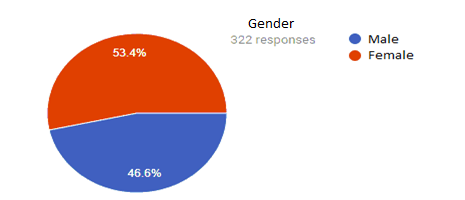
Respondents’ age (see Figure
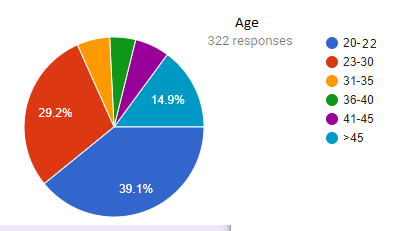
In terms of graduation, 73.6% of the respondents are bachelor graduates and 21.1% are master graduates.
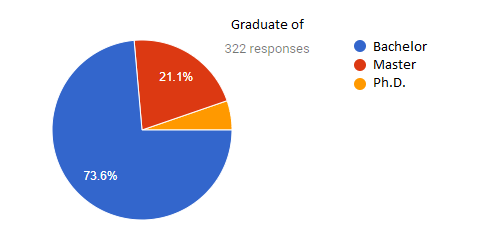
In the Figure
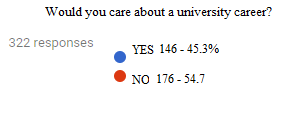
Regarding the motivation to or not to follow a didactic career the findings can be viewed in the Figure
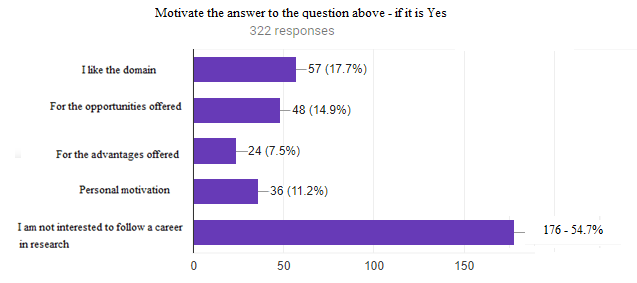
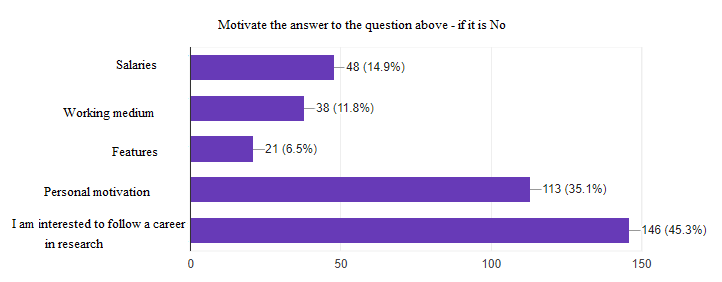
On the other hand, regarding the intention to follow a research career, see Figure

It is interesting to see what is the motivation to or not to choose a career in research – see Figure
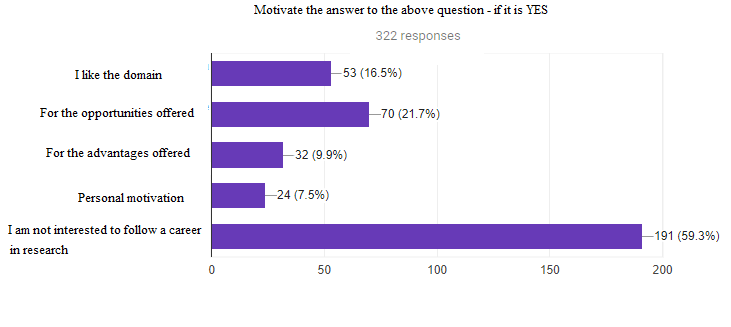
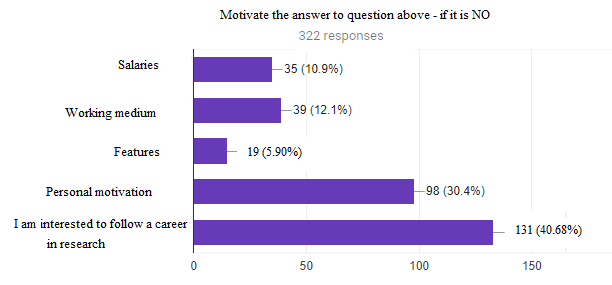
Regarding the aspects like:
the articles / book chapters / books written by the respondents;
the number of scientific researches done by respondents completed with a deliverable;
the way of articles dissemination and publication by respondents,
the study reveals the findings from the Figures
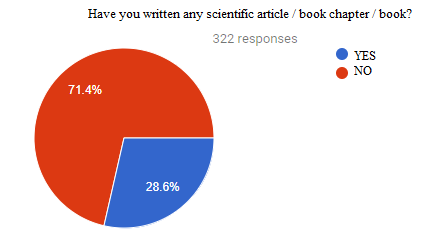
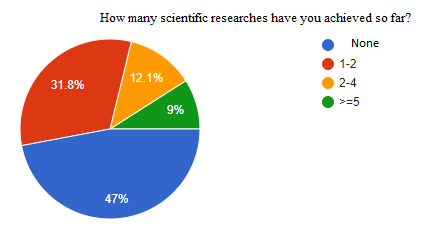
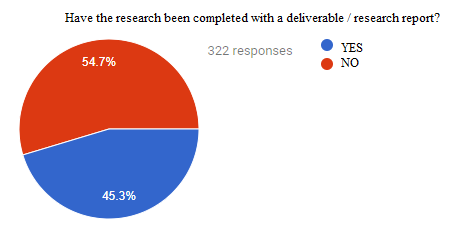
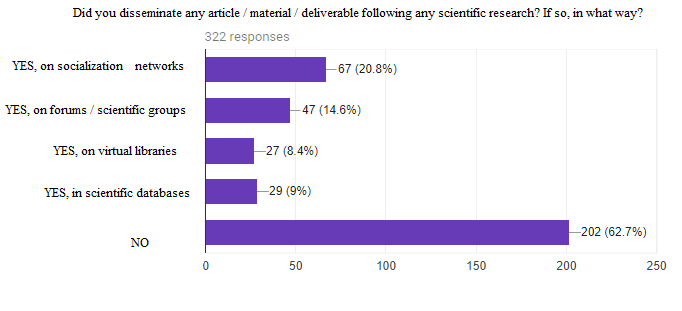
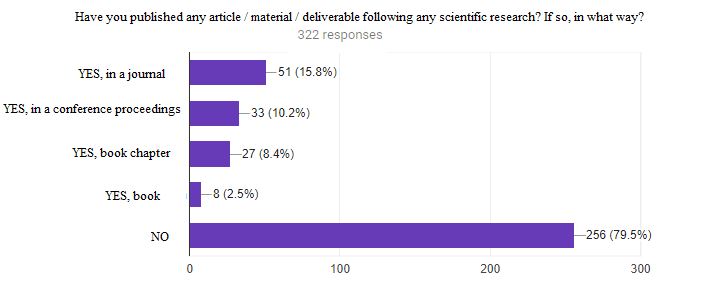
The final questions of the research refer to the intention of the respondents to continue studies at Ph.D. level and to conduct a research and to publish the results in the next period – see Figures
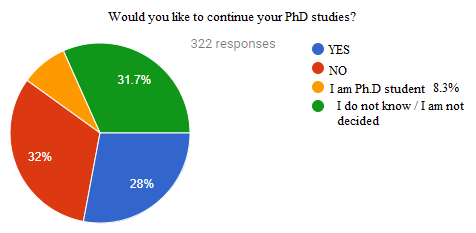
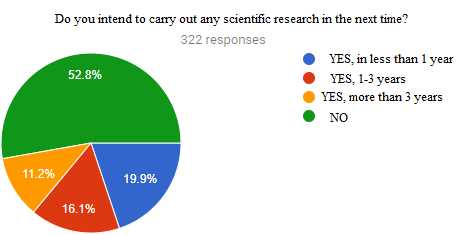
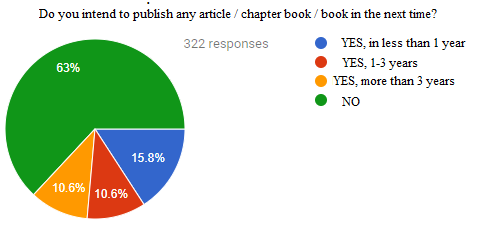
Conclusion
A career in research implies working hard to get contributions in science, presenting papers at conferences and publishing the work.
A career in education, as a teacher, means to educate, inspire and change the others. You also have to learn from this experience.
In this paper we found interesting results regarding: the attractiveness of a career in research or education, the motivation to choose a didactic or research career etc. Among the motivation to choose a career in research or in education we can enumerate: the opportunities and the advantages offered and also personal motivation. Among the motivation not to choose a career in research or in education the data analysis reveals: salaries and working medium. Other research findings refer to how many researches were being conducted and how many papers / books chapters were being written and disseminated by respondents, the intention to continue the studies at the Ph.D. level etc.
As future work we can do a research with a larger target group (1000 persons for example).
References
- Berman, F. (accessed in 2018). Building a Research Career, Retrieved from http://math.mit.edu/conferences/wim/conference/career_building.pdfm.
- Low, E. L., Lim, S. K., Ch’ng, A., & Goh, K. C. (2011). Pre-service teachers’ reasons for choosing teaching as a career in Singapore. Asian Pacific Journal of Education, 31(2), 195-210.
- Muazza, A. M., Rosmiati, M. A., & Tiara, A., (2016). Student Teachers’ Reasons For Choosing A Teacher Education Program At One Public University In Indonesia And Policy Implications. The Online Journal of New Horizons in Education, 6(4), 187-194.
- Naresh, K. and Birks, D. (2007), Marketing Research. An Applied Approach, Third European Edition, Prentice Hall, London.
- Păişi Lăzărescu, M., Stan, M. M., Tudor, S. L. (2013). A study on the relation between locus of control and creative attitudes in the structure of didactic competence. Procedia - Social and Behavioral Sciences, 84, 1381-1385.
- Pânişoară, I. O., Pânişoară, G. (2010). The motivation for teaching career. Bucharest, Romania: University of Bucharest Publishing House.
Copyright information

This work is licensed under a Creative Commons Attribution-NonCommercial-NoDerivatives 4.0 International License.
About this article
Publication Date
28 February 2019
Article Doi
eBook ISBN
978-1-80296-055-6
Publisher
Future Academy
Volume
56
Print ISBN (optional)
-
Edition Number
1st Edition
Pages
1-719
Subjects
Pedagogy, education, psychology, linguistics, social sciences
Cite this article as:
Tiganoaia, B., Mihai, P., Bucovetchi, O., & Cernian, A. (2019). About Didactic And Research Career - A Study In Technical Universities From Romania. In S. Ivanova, & I. Elkina (Eds.), Cognitive - Social, and Behavioural Sciences - icCSBs 2018, vol 56. European Proceedings of Social and Behavioural Sciences (pp. 235-244). Future Academy. https://doi.org/10.15405/epsbs.2019.02.02.27

